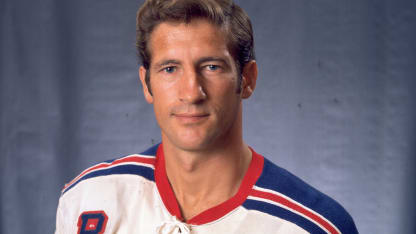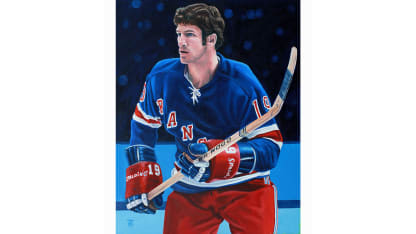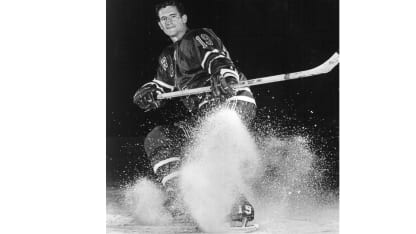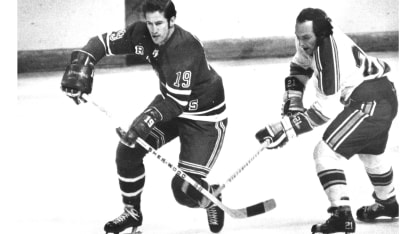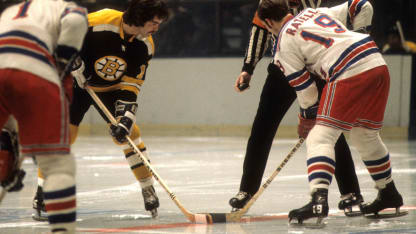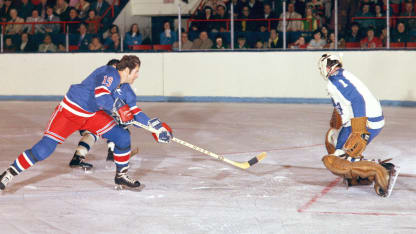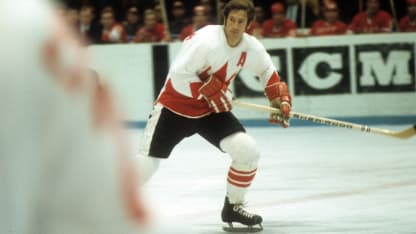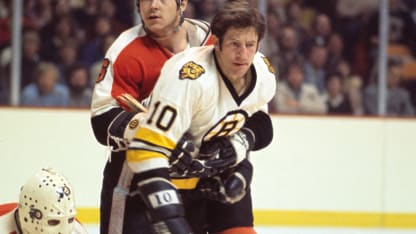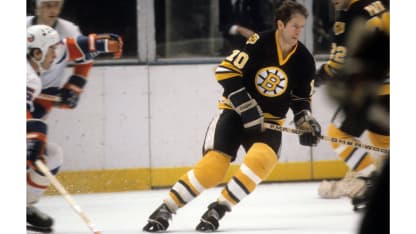Ratelle was born Oct. 3, 1940 in Lac St-Jean, Quebec, about 300 miles north of Montreal. His father, Leo, was a dentist, originally from Montreal, and moved the family back there when Jean was 10. Attending Academie Roussin on the east end of Montreal Island, Ratelle befriended schoolmate Gilbert and they became linemates on Roussin's successful hockey teams and other youth teams, the first organized hockey Ratelle ever played.
When the 16-year-old Gilbert landed with the Rangers' Junior A team in Guelph, he urged scouts and coaches to get Ratelle, too, telling them, "He's better than me." Ratelle still needed some seasoning but, a year later, the pair were linemates again in Guelph. In his final junior season, 1960-61, with Francis as the coach, the 20-year-old Ratelle led the Ontario Hockey Association in assists with 61 in 47 games, and he and Gilbert each topped 100 points. He also played a three-game stint with the Rangers, collecting two goals and an assist.
Turning pro the next year, Ratelle made the Rangers out of training camp but didn't stick, and for three seasons he shuttled between the big club and New York's top farm teams. The Rangers wanted him to play more physically, which wasn't his style, and more experienced centers bumped him down the depth chart.
He became an NHL player for good in 1964-65, and once Francis became coach the next season, he reunited Ratelle with Gilbert. Francis later added the rambunctious Hadfield, giving them all the ingredients of a classic line, a sniper, a passer and a banger. Ratelle responded with his first 20-goal season.
